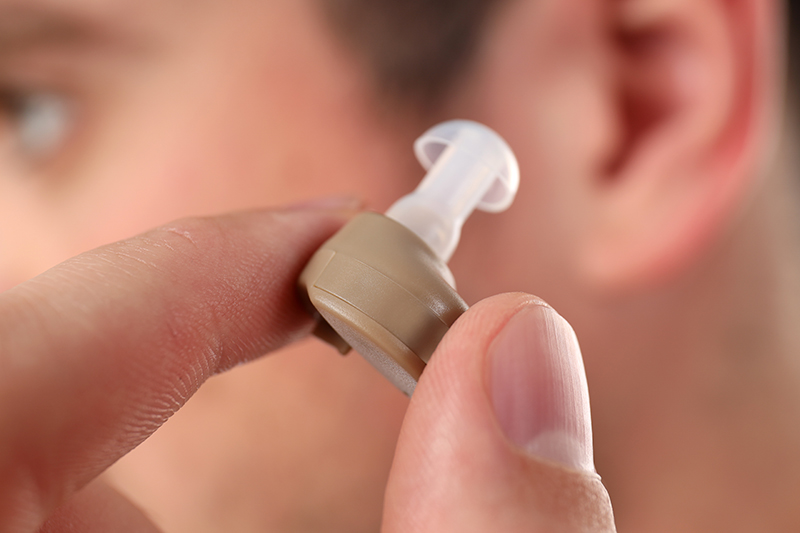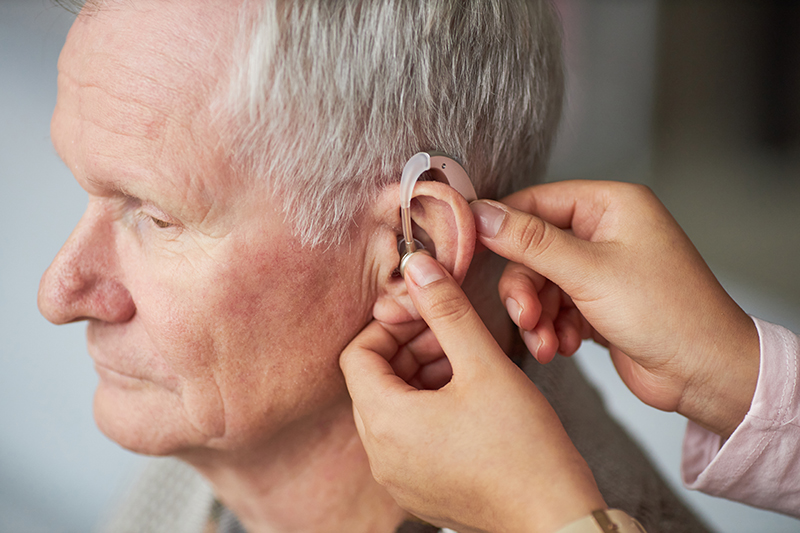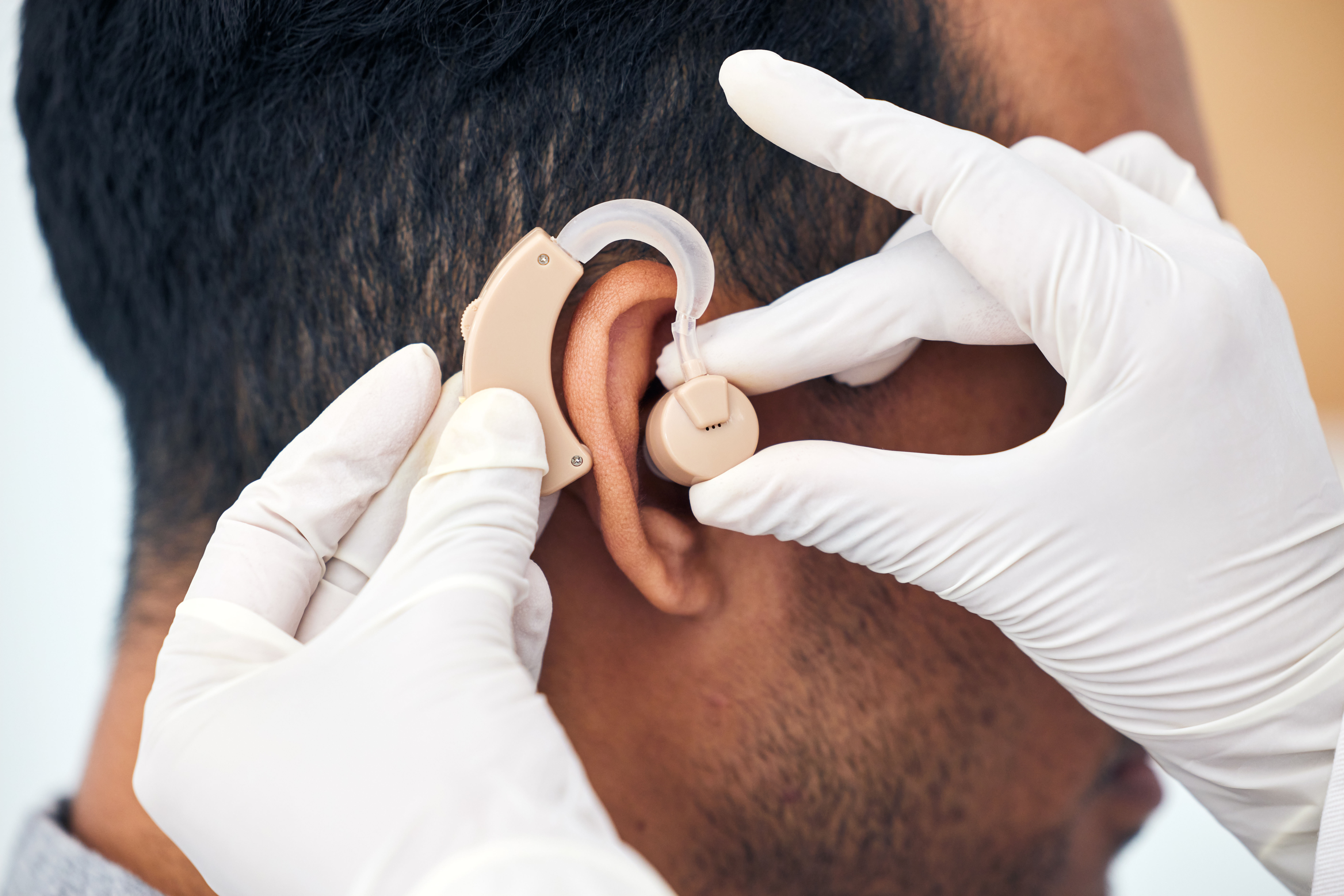Bio-degradable cards
Every card imaginable!
|
Bio-degradable cards Every card imaginable! Hearing Impairment Guide
DisclaimerThis guide is for informational purposes only and is not a substitute for professional medical advice, diagnosis, or treatment. Always consult a qualified healthcare provider, such as your GP or an audiologist, for any personal health concerns or before making decisions about your hearing health. This information is dated December 2025. Table of ContentsUnderstanding Hearing Impairment: The BasicsHearing impairment, often referred to as hearing loss, changes the way we pick up and make sense of sounds around us. It's a condition that touches people of all ages, from tiny newborns right through to older adults, and it can range from slight trouble hearing whispers or distant voices to not hearing loud sounds at all. If you're starting to notice these changes in yourself or someone close to you, it's completely understandable to feel anxious—after all, hearing plays a big part in how we chat with friends, enjoy music, or stay aware of important noises like alarms or approaching cars. How Common Is Hearing Loss in the UK?Recent figures from the Royal National Institute for Deaf People (RNID) show that more than 18 million adults in the UK are living with some level of hearing loss. This includes milder cases and those affecting just one ear, giving a fuller picture of how widespread it really is. It affects people across all age groups. While hearing loss becomes much more common with age—over half of those aged 55 and above experience it, rising to around 80% for people over 70—it can also occur in children and younger adults due to factors like genetics, infections, or loud noise exposure. Severity can differ greatly from person to person. Some people have mild loss, where quiet sounds or certain words get missed, especially in background noise. Others face moderate challenges in group settings, while severe or profound loss might mean relying more on visual cues or amplification devices. Many notice it gradually, adapting along the way without realising the full extent at first. It's often about clarity, not just loudness. Words might sound muffled or blended together, making busy environments like restaurants or family gatherings particularly tiring. This can sometimes lead to feelings of frustration or pulling back from social situations, but plenty of support options help people stay fully involved. How Does Hearing Normally Work?To get a clearer idea of what happens in hearing impairment, it's worth understanding the everyday process of hearing. Sounds start as vibrations in the air, and our ears cleverly turn them into signals the brain recognises as speech, music, or warnings. Here's a straightforward step-by-step look:
If any part of this chain gets disrupted—whether from blockage, damage, or nerve issues—hearing impairment can develop. It might be temporary, such as from a buildup of earwax or a middle ear infection that clears up with treatment, or more permanent. Tinnitus, that persistent ringing, buzzing, or whooshing heard only by the person affected, can also tag along when the system misfires. Why It Matters in Daily LifePicture your routine: catching up over breakfast, following a meeting at work, or listening to a grandchild's story. Hearing changes can make these feel effortful, perhaps prompting more "pardon?" moments or a sense of mental tiredness from concentrating hard. On the positive side, many find that tackling it brings new strengths, like better reading of body language or appreciation for quieter activities. In the UK, accessibility is improving too—think hearing loops in public venues, subtitles on broadcasts, or apps that transcribe speech in real time. These help level things out and make everyday experiences more inclusive. Common Misconceptions to Clear Up
For parents especially, there's strong reassurance built into the system. The NHS Newborn Hearing Screening Programme offers every baby a simple, painless check soon after birth—usually in hospital or at a home visit. This nationwide service spots permanent issues early, when tailored support for communication and development can truly transform outcomes for speech, learning, and confidence. 
Types and Causes of Hearing ImpairmentHearing loss comes in different forms, and understanding which type you or a loved one might have makes it easier to know what to do next. Many causes are common, and a lot have simple ways to manage or improve them. Here’s a clear breakdown of the main types and what typically causes them. Breaking Down the Main TypesHearing loss is usually classified by where the problem occurs in the ear:
Conductive Hearing Loss: Usually the Easiest to FixThis type comes from something blocking or interfering with sound in the outer or middle ear. Common causes include:
Sensorineural Hearing Loss: The One That Tends to Stick AroundThis is the main type for most adults in the UK and usually comes from damage to the inner ear or hearing nerve. Common causes include:
Mixed Types and Less Common CausesMixed hearing loss can arise from long-term ear infections or age-related changes combined with blockages. Central hearing issues, while rare, show how hearing depends on the brain as well as the ears. Understanding the type and cause of hearing loss can reduce worry, and many cases are preventable or manageable. In the UK, the NHS makes assessment straightforward, so seeking help early is always a good step toward maintaining hearing health. 
Signs, Symptoms, and How It's DiagnosedNoticing changes in hearing early can make a big difference for you or someone you care about. Hearing loss often develops slowly, so it’s easy to dismiss as “just ageing” or background noise. You might find yourself asking people to repeat things, or hear complaints that the TV is too loud. For parents, it could be a child who seems inattentive or slow to talk. Feeling worried or unsure is normal, but acting early usually opens up more options and makes everyday life easier. Common Signs in Everyday LifeHearing changes can appear differently depending on age and severity, but common signs include:
Signs to Watch For in Babies and Young ChildrenEarly detection is key for development:
Other Possible Clues
How Hearing Loss Is Diagnosed in the UKIf you notice these signs, start with your GP. They can check your ears, rule out simple causes, and refer you to an audiologist for detailed testing. NHS services are free and widely available. Typical steps include:
Many people feel nervous before testing, but audiologists guide you through each step. A clear diagnosis allows you to explore the right support, whether that’s wax removal, hearing aids, or practical lifestyle tips. Noticing changes and getting tested is a positive step toward staying connected and active. 
Living with Hearing Impairment: Daily Management and SupportLiving with hearing loss can feel challenging at first, especially if you're worried about missing out on conversations, work meetings, or family moments. It's completely understandable to feel frustrated or isolated sometimes—many people go through that. The good news is that with some practical adjustments and the right support, most folks find ways to stay fully involved in life. In the UK, over 18 million people are now living with some degree of hearing loss, according to the latest figures from the RNID, and plenty of resources are available to help you adapt confidently. Simple Communication Strategies That Make a Big DifferenceGood communication is at the heart of managing day to day, and small changes can reduce misunderstandings and that sense of strain.
Helpful Tools and Devices for Everyday LifeModern gadgets can bridge many gaps, from hearing the doorbell to enjoying a programme—and many are available through the NHS or specialist suppliers.
Looking After Your Emotional and Social WellbeingHearing loss can sometimes affect mood or confidence, but connecting with others who get it helps a lot.
Staying Safe and HealthyA few lifestyle tweaks support overall hearing health and safety.
You're not alone in this—millions in the UK manage hearing loss successfully every day, often discovering new strengths along the way. With NHS support, charities like RNID, and growing accessibility, there are more tools than ever to keep you connected and independent. Taking small steps, like trying a new device or joining a group, can make a real positive difference. 
Treatment Options and Advances in CareThe right treatment for hearing loss depends on what's causing it, how severe it is, and your personal circumstances—like whether it's affecting one ear or both, or how active your days are. If you're discussing this with your GP or audiologist, it's completely normal to have lots of questions or feel a bit daunted by the choices. Many people find that the options available today make a real difference to staying connected, and in the UK, much of this support comes free through the NHS. It's encouraging that simple causes often have straightforward fixes, while longer-term issues have increasingly effective ways to manage them. Treatments for Reversible or Conductive CausesSome hearing problems can be fully sorted or greatly improved with medical help, which brings quick relief—especially if it's from something temporary.
Hearing Aids: The Most Common SolutionFor most people with permanent hearing loss—particularly sensorineural from ageing or noise—hearing aids are the go-to, amplifying sounds to make them clearer and easier to follow.
Implants and Other Advanced DevicesFor severe or profound loss where standard aids aren't enough, implants can open up sound in transformative ways.
Rehabilitation and Supportive TherapiesGetting the most from any treatment often involves a bit of practice and adjustment.
Exciting Advances on the HorizonResearch is moving fast, offering real hope for the future—though most are still in trials.
Your audiologist will guide you through what's best for you, often starting simple and building from there. In the UK, NHS pathways make high-quality care reachable, and charities like RNID offer extra advice. Taking that first step to explore options can lead to feeling more in control and connected—many people look back and wish they'd done it sooner. 
Help and Further ResourcesYou're not alone when it comes to managing hearing impairment—there are plenty of trusted organisations and services in the UK ready to offer practical advice, emotional support, and community connections. If you're feeling overwhelmed or just need someone to talk to who understands, reaching out can make a big difference. Many people find that linking up with others in similar situations brings reassurance and helpful tips for everyday life. Key UK Organisations and CharitiesThese groups provide free, reliable information tailored to people living with hearing loss, tinnitus, or supporting family members.
NHS and Official Support
Additional Practical HelpMany people with hearing impairment find it useful to carry one of our Medical ID or Awareness Cards. Our range of cards can help in situations like emergencies or everyday interactions—letting others know quickly how best to communicate with. We recommend taking a look at our selection to find out more. Connecting with these resources is a positive step—whether it's browsing a website for tips, joining an online forum, or calling a helpline. They exist because so many people benefit from the shared knowledge and support. Whatever stage you're at, there's help out there to make things feel more manageable. 
Frequently Asked Questions (FAQ)Here are answers to some of the questions people most often ask about hearing impairment. If yours isn't covered, your GP or a charity like RNID can help with more personal advice. What causes hearing impairment in newborns?Congenital hearing loss in babies can come from genetic factors (often inherited, even if parents hear normally), infections during pregnancy (like cytomegalovirus or rubella), or complications around birth, such as low oxygen or prematurity. In the UK, about half the cases have no clear cause, which can be worrying for parents, but the important thing is that the NHS newborn screening catches most issues early. With prompt support—like hearing aids, cochlear implants, or learning British Sign Language—most children develop strong language skills and thrive alongside their peers. Is hearing loss always permanent?No, not always. Conductive hearing loss from things like earwax buildup, infections, or glue ear often clears up completely with simple treatment or as children grow. Sensorineural loss, usually from ageing or loud noise exposure, tends to be permanent, but modern hearing aids and other devices manage it very effectively. It's reassuring that many temporary cases resolve naturally or with quick help. How can I protect my hearing from getting worse?The best steps are avoiding loud noises over 85 decibels—wear earplugs at concerts, when using power tools, or in noisy workplaces. Turn down headphones, take breaks in quiet spots, and get regular check-ups if you're at higher risk (like from a noisy job). Managing conditions like diabetes, quitting smoking, and staying healthy overall also support ear health. What are the signs of hearing loss in older adults?Common signs include needing the TV or radio louder than others like, struggling to follow conversations in noisy places, or frequently asking people to repeat themselves. Tinnitus (ringing in the ears) often appears too, and some people start withdrawing from social situations because it's tiring. A free NHS hearing assessment can confirm it quickly, and hearing aids often bring back much of the clarity. Can hearing aids help with tinnitus?Yes, they often do. Many modern hearing aids include built-in sound generators that play gentle masking noises to distract from the ringing, reducing how noticeable it feels. Combined with relaxation techniques or counselling, this brings relief for most people—talk to your audiologist about trying one if tinnitus is bothering you. Is there a link between hearing loss and dementia?Research, including UK studies, suggests that untreated hearing loss might raise the risk of dementia, possibly because of increased social isolation and the extra mental effort needed to listen. Addressing hearing loss early with aids or other support seems to help lower that risk and improve overall wellbeing. It's one more good reason to get checked if you're noticing changes. How do I talk to my doctor about hearing concerns?Just book a GP appointment and describe what you've noticed—like struggling in noise or missing parts of conversations—and when it happens. Note any family history or noisy hobbies too. Your doctor will examine your ears and refer you for a free hearing test if needed—it's a simple process, and being open helps them give you the right support. What support is available for deaf children in school?In the UK, specialist teachers of the deaf visit schools to provide tailored help, from fitting hearing technology to teaching British Sign Language (BSL). Schools must make reasonable adjustments, like better seating or FM systems that stream the teacher's voice directly. The National Deaf Children's Society (NDCS) offers great advice for parents on advocating and accessing individual education plans. Can medications cause hearing loss?Yes, some can—certain antibiotics (like gentamicin), high-dose aspirin, or chemotherapy drugs are known as "ototoxic" and can damage the inner ear. It's usually dose-related and more likely in longer treatments. Always discuss risks with your doctor or pharmacist, and report any new ringing or hearing changes straight away. How effective are cochlear implants?For people with severe or profound hearing loss who get limited benefit from hearing aids, cochlear implants are often life-changing—restoring useful hearing in 80–90% of cases. They're especially effective in young children when fitted early, helping speech development. The NHS covers them for those who meet criteria, and follow-up therapy is key to getting the best results. Is hearing loss more common in men or women?It's slightly more common in men, often due to higher exposure to occupational noise (like construction or factory work). Ageing affects both genders equally, though, and lifestyle factors like loud music play a role for everyone. Overall numbers are rising across the board as the population ages. What if hearing aids don't work well?Don't give up—your audiologist can fine-tune settings, try different models or styles, or add accessories like remote microphones for noisy places. If standard aids aren't enough, alternatives like cochlear implants or bone-conduction devices might be options. Most people find a solution that works well with a bit of persistence and professional support. 
ConclusionHearing impairment affects so many people in the UK—over 18 million adults alone, according to the latest RNID estimates—and it can touch lives in quiet, everyday ways or more noticeably. If you're reading this because you've noticed changes in your own hearing or in someone close to you, it's completely understandable to feel a mix of concern and uncertainty. But the encouraging truth is that awareness and action can make a huge positive difference, helping most people stay connected to the conversations, sounds, and relationships that matter. Throughout this guide, we've covered the basics: how hearing works, the different types and common causes, and the signs that might prompt a check-up. Early recognition often leads to simpler solutions, and in the UK, the NHS makes diagnosis straightforward with free tests and quick referrals. For many, practical strategies—like better positioning in chats or using subtitles—combined with modern hearing aids or other devices, bring back clarity and confidence in daily life. Treatments are advancing too, from effective implants for profound loss to emerging research into gene therapies and hair cell regeneration that offers real hope for the future. Support is never far away, whether through charities like RNID, specialist help for families via NDCS, or local NHS services. Remember, this guide is for general information only and isn't a replacement for professional advice. Every person's experience is unique, so if something here resonates, the best next step is chatting with your GP or an audiologist—they'll listen to your concerns and guide you personally. The overwhelming message from people living with hearing loss is that it doesn't have to limit a full, enjoyable life. With the growing range of tools, accessibility improvements, and community support in the UK, most find ways to adapt and thrive. You're already taking a positive step by learning more—keep looking after your hearing, encourage check-ups for loved ones, and reach out when needed. Enjoying the sounds around you, from laughter to music, is worth it. This information is accurate as of December 2025. Medical understanding and services continue to evolve, so always consult a qualified healthcare professional for the most up-to-date, personalised guidance.
© 2024 The Card Project Uk Ltd
VAT: 453 2087 06
|